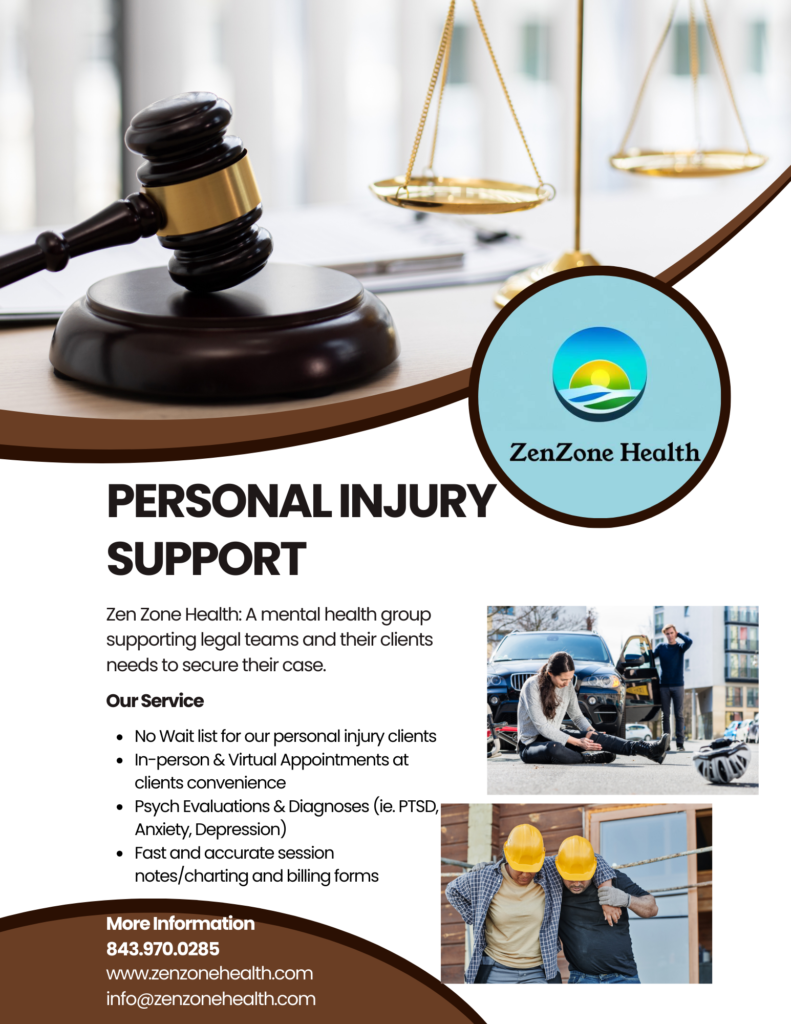
At Zen Zone Health, we offer comprehensive support and therapy for individuals recovering from personal injury accidents. Our approach integrates Cognitive Behavioral Therapy (CBT) and Cognitive Remediation Therapy (CRT) to address both the emotional and cognitive aspects of recovery. Through structured sessions and goal-oriented strategies, CBT targets maladaptive thought patterns and behaviors, promoting adaptive coping skills and fostering resilience. Additionally, CRT focuses on improving cognitive functioning and remediating deficits resulting from neurocognitive disorders or psychiatric conditions, such as Traumatic Brain Injury (TBI) and post-accident concussion/post-concussional syndrome. By combining these approaches, we aim to facilitate holistic healing and support individuals in reclaiming their quality of life following personal injury accidents.
Cognitive Behavioral Therapy (CBT):
Focus: CBT is a structured, goal-oriented therapy that targets maladaptive thought patterns and behaviors.
Approach: It combines cognitive restructuring techniques to challenge negative thoughts with behavioral interventions to modify problematic behaviors.
Goals: The primary goal of CBT is to identify and change cognitive distortions, develop coping skills, and promote adaptive behaviors.
Applications: CBT is widely used to treat various mental health conditions, including anxiety disorders, depression, and post-traumatic stress disorder (PTSD).
Cognitive Remediation Therapy (CRT):
Focus: CRT aims to improve cognitive functioning and remediate cognitive deficits in, particularly in individuals with neurocognitive disorders or psychiatric conditions, such as Traumatic Brain Injury, .
Approach: It involves structured cognitive training exercises and drills designed to enhance cognitive skills such as attention, memory, problem-solving, and executive functioning.
Goals: The primary goal of CRT is to improve cognitive abilities and functional outcomes, such as academic or vocational performance, independent living skills, and social functioning.
Applications: CRT is commonly used in conjunction with other therapies for individuals with cognitive impairments resulting from conditions such as traumatic brain injury, schizophrenia, rehab for stroke victims and post concussion trauma.
